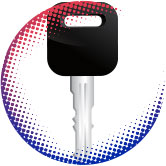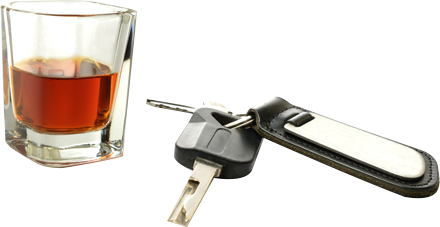The Police Stop You
For Driving While Intoxicated
What Should You Do?
Stopped For DWI?
What Should You Do?
NYC DWI Charges?
Our Lawyers Help
Recover Your Car…
Save Your License!
 If you’ve been arrested for Driving While Intoxicated (DWI), you’re likely feeling confused, overwhelmed, and unsure of what to do next. Our firm helps people like you navigate the legal system, protect their rights, and get their lives back on track. Below are some of the most frequently asked questions we hear from clients facing DWI charges.
If you’ve been arrested for Driving While Intoxicated (DWI), you’re likely feeling confused, overwhelmed, and unsure of what to do next. Our firm helps people like you navigate the legal system, protect their rights, and get their lives back on track. Below are some of the most frequently asked questions we hear from clients facing DWI charges.
What is a DWI in New York?
DWI (Driving While Intoxicated) means operating a motor vehicle while under the influence of alcohol, drugs, or both. In New York State you’re considered legally intoxicated if your blood alcohol concentration (BAC) is 0.08% or higher (and over the age of 21). However, you can still be charged even if your BAC is lower—especially if law enforcement believes your ability to drive was impaired.
Will I go to jail for a first-time DWI?
Jail time is possible for a first offense, but not always required. Many first-time DWI offenders may be eligible for probation, deferred adjudication, or alternative sentencing programs. The outcome will depend on the specific circumstances of your case, including your BAC, whether an accident occurred, and whether anyone was injured.
What are the penalties for a DWI conviction?
Penalties vary depending on your state, prior offenses, and the severity of the incident. Common consequences include:
- Jail or probation
- Fines and court costs
- Suspension or revocation of your driver’s license
- Mandatory alcohol education or treatment programs
- Community service
- Installation of an ignition interlock device (IID)
An experienced DWI attorney can help reduce or even eliminate some of these penalties.
Can I get my license back after a DWI?
Yes, but not automatically. Your driver’s license may be suspended shortly after your arrest—even before your case goes to court. To get your license reinstated, you’ll need to follow certain steps, which may include:
- Requesting an administrative hearing within a limited time frame
- Completing a DWI education program
- Paying reinstatement fees
- Installing an ignition interlock device
We can guide you through the reinstatement process and represent you at your license suspension hearing to improve your chances of getting your driving privileges restored as quickly as possible.
Can I get my car back after a DWI arrest?
In many cases, yes. If your vehicle was impounded during your DWI arrest, you’ll likely need to:
- Pay towing and impound fees
- Provide proof of ownership and insurance
- Present valid identification
- Possibly obtain a court release if required by your jurisdiction
It’s important to act quickly—impound fees can accumulate daily, and failure to claim your car within a certain period could result in additional complications. Our team can help you understand your local rules and get your vehicle released promptly.
Can I refuse a breath or blood test?
You can, but there are consequences. Under most New York’s implied consent laws, refusing a breath or blood test can result in an automatic license suspension—often longer than if you had submitted to the test. However, in some cases, refusing the test may create legal opportunities to challenge the evidence against you. Only a qualified attorney can help you assess the impact of your decision and build the strongest possible defense.
Do I really need a lawyer for a DWI?
Yes — DWI charges carry serious, long-term consequences, including a criminal record, loss of driving privileges, and even jail time. An experienced DWI lawyer understands how to challenge traffic stops, field sobriety tests, chemical results, and other elements of the prosecution’s case. Your best chance at reducing or dismissing the charges starts with strong legal representation.
Can a DWI charge be dismissed or reduced?
Yes, it’s possible. DWI cases may be dismissed or reduced for a variety of reasons, such as:
- Illegal traffic stop or arrest
- Faulty or improperly administered breath or blood tests
- Violation of constitutional rights
- Errors in police reports or testimony
We meticulously investigate every aspect of your case to find opportunities for dismissal or reduction.
How long does a DWI stay on my record?
A DWI conviction may stay on your record permanently, and often for at least ten years (with no additional criminal charges during that time). Some states allow for expungement or record sealing after a certain period, particularly for first-time offenders. We’ll help you explore every legal option to clear your record.
What should I do after a DWI arrest?
- Stay calm and cooperative with law enforcement.
- Do not admit guilt or answer detailed questions without a lawyer present.
- Write down everything you remember about the arrest.
- Contact a DWI defense attorney immediately.
At the Law Offices of Michael S. Discioarro, we understand how stressful and intimidating a DWI charge can be. Our experienced NYC DWI Attorneys have in-depth knowledge of New York’s DWI laws and procedures, and we are dedicated to providing you with a defense strategy designed to protect your rights and your future. Here’s why our clients trust us to represent them in DWI cases:
 We Are Your Key To Fight DWI Charges
We Are Your Key To Fight DWI Charges

Contact us today to schedule a consultation with one of our experienced New York City DWI Attorneys. Let us fight for you and help you get the second chance you deserve. Your future is too important to leave to chance — trust us to be by your side every step of the way. Call 917-519-8417 to consult with an experienced NYC DWI Attorney.
Read Our Clients’ Testimonials
-
Martin B.
Excellent Attorney
Michael is an excellent Attorney. He was able to get my case dismissed. He listened to what I had for say and applied it to my defense.Read more -
Robert Z.
Absolute Top-Notch Criminal Defense Lawyer
This review comes from someone with a law degree from NYC. I landed on Michael after a thorough review online of his background and DWI experience. It's hard to think where my life and career would be right now if I entrusted my case (which involved an aggressive NYPD traffic stop leading to a DWI charge) to any other lawyer I considered. Michael displayed the perfect combination of factors: he aggressively defended me, respectfully contested any and all prosecutorial overstepping, understood exactly how/where their case was weak, and all the while kept me at ease in an otherwise stressful situation. And that was no easy task - my case kept getting adjourned because the prosecution was never ready. And while I wasn't thrilled that the court kept making me appear (over a year and half - one of the longest cases on the docket), Michael was there for me every step of the way. What did all that amount to? A DWI charge reduced to community service - no probation, no suspension, no major disruption to my life. While you must keep in mind that every case is different, one sure guarantee is that if Michael takes your case, he WILL defend you to the fullest. By the end, I considered Michael a friend as much as a lawyer.
Read more -
Maggie C.
“I chose to go to law school because I thought that someday, somehow I’d make a difference”, a quote by Christopher Darden
When I read this I immediately thought of Michael and my experience with him. I didn’t know Michael prior to needing legal advice and representation. I did exactly what you are doing now, reading the reviews attorneys received from their client in determining if this was the right choice for my situation. Once meeting and consulting with Michael about my legal situation, (potential DWI) I knew he was the right lawyer to represent me. At the end of 10 months of going through the process of court dates and hearing, he came through, even when I started to think the outcome would not result in my favor. Before trail he met with the DA, and did make a BIG difference, reducing a potential DWI misdemeanor conviction to a traffic violation. My advice to you, choose Michael, listen to his counsel, go through the process and don’t lose faith because his goal is to “make a difference” on your behalf. Thanks again Michael!
Read more -
Noel R.
Michael was always honest which is key, professional and most importantly he got the job done. My case was won and I couldn't be happier. I would definitely suggest him.
Read more -
Anonymous
Great Lawyer
Mike helped me out with a DUI case i was involved with. He was informative and extremely good his job. Facing some serious charges he was able to help me with being charged for an infraction. The fine was reduced and i will have to take a class. Unfortunately, my license will be suspended but he was able to get a stay for 20 days so i can work and figure out what i will have to do for the future running my business. I highly recommend Mr. Discioarro.
Read more -
Richard H.
Excellent Lawyer | DWI Case
Michael is truly the best at what he does. Great guy, very down to earth, straight forward and upfront. He makes the most stressful situations feel very light. After some research online, i found him and read some reviews that prompted me to set up a meeting resulting in me hiring him. After my dwi, my car was impounded. He helped me get it back very quickly and was in contact with me every step of the way. He reponded to any questions, messages, or phone calls in a timely fashion. After many court dates, my case eventually got dismissed thanks his dedication and hard work. I would highly recommend him.
Read more -
Jerry C.
Great Guy, Greater Lawyer
Michael is a great man and more specifically a great lawyer, after being arrested for a DWI in New York, I thought I was done for and I would have to spend time in jail. Michael helped me through the entire process, showing me what I needed to do to beat the case as best as possible. He was upfront and honest with me and told me what will happen and how things were to turn out. I did what I had to do, going through an alcohol program, fixing my driver's license and showing up for ever court appearance. After numerous court appearances, the case was dropped down to a traffic infraction. I felt relieved and happy to know that I only had to pay a $300 fine. I've kept in contact with Mike ever since and even referring him to others that got caught up one night. Thanks again Michael
Read more





